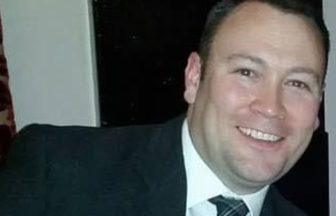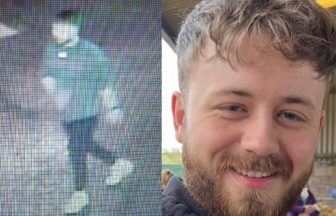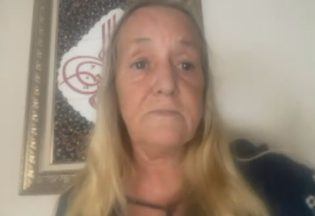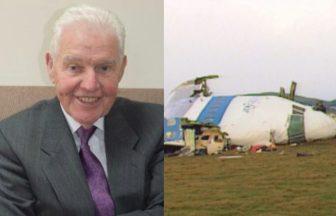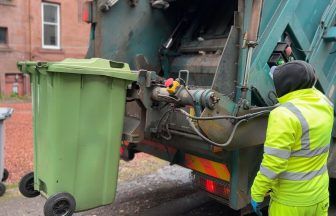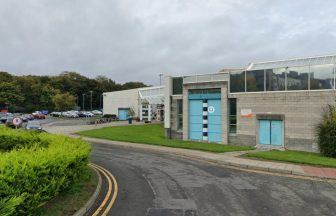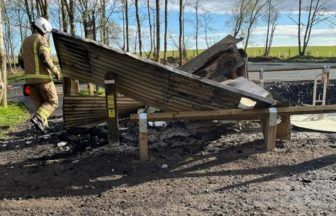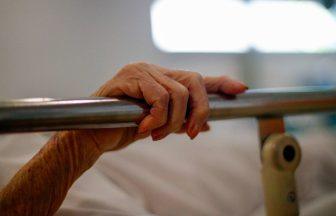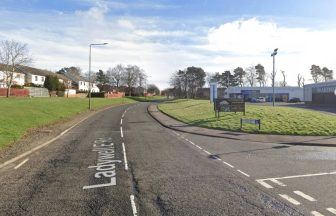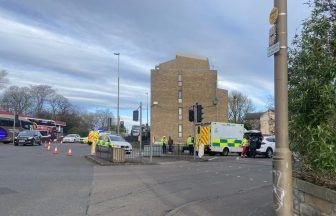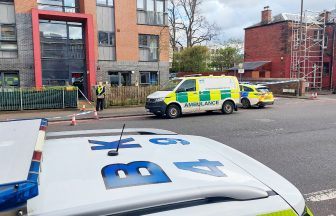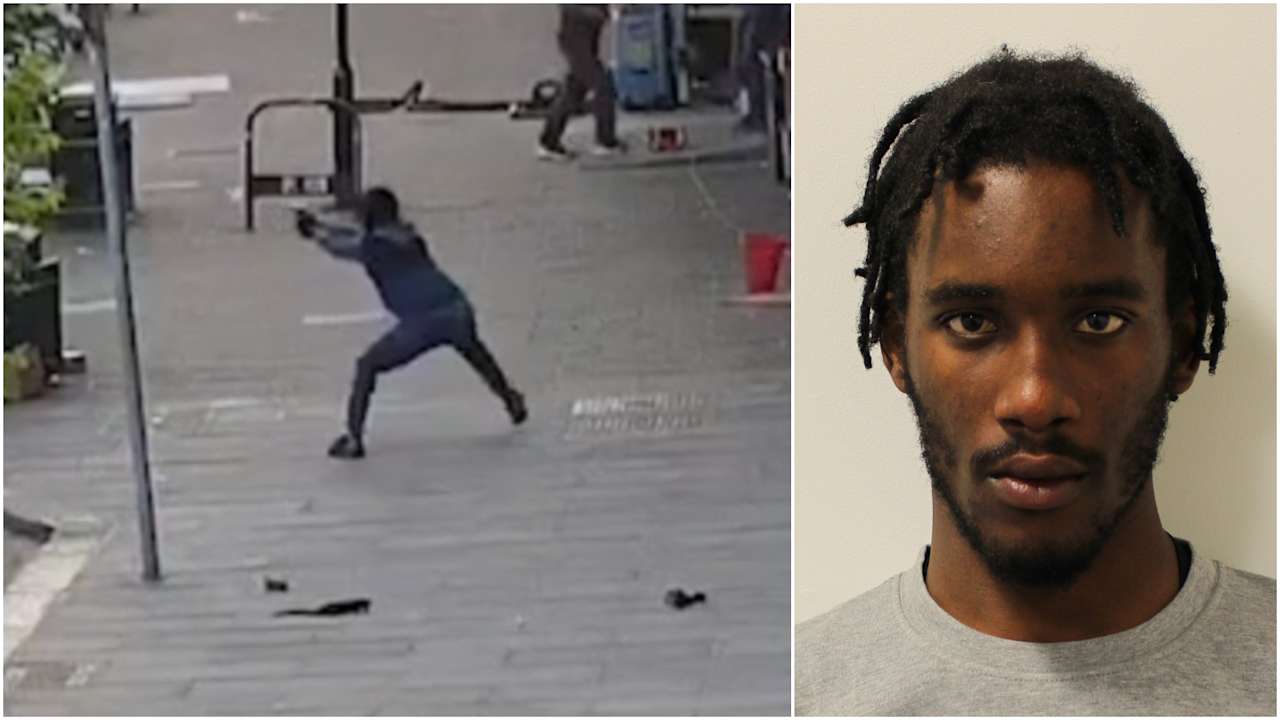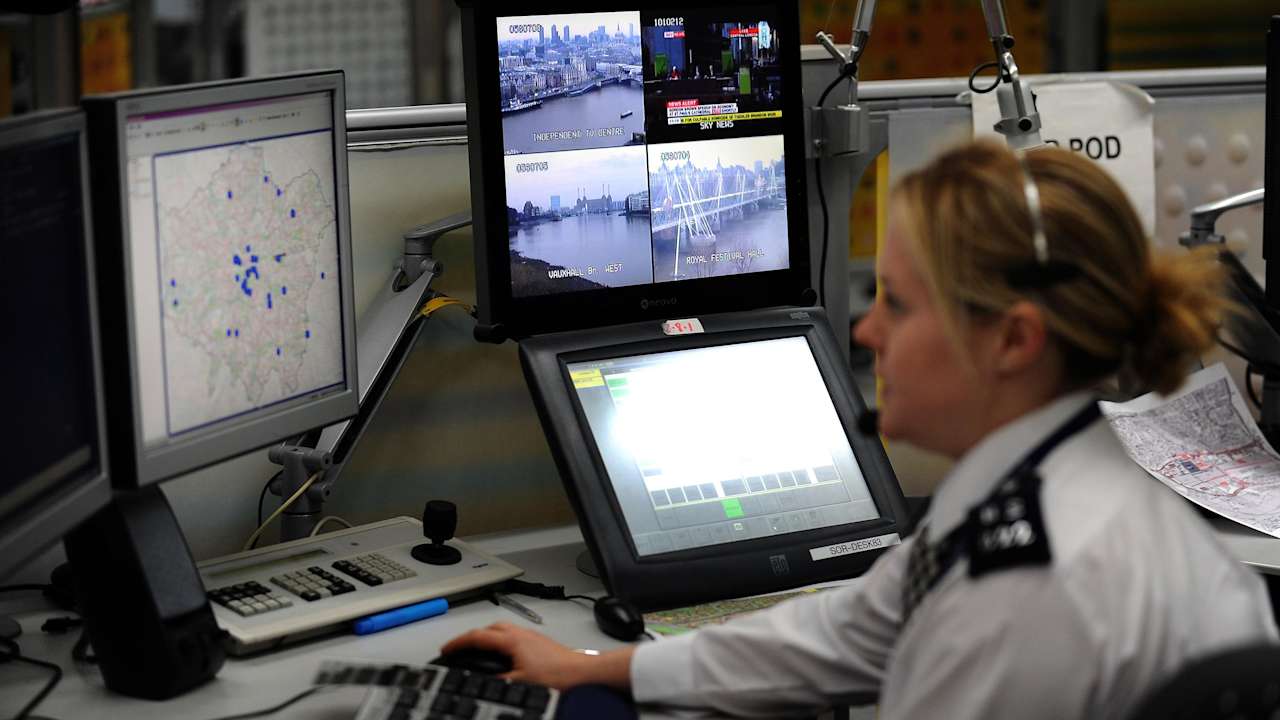Police Scotland has been fined £100,000 after admitting failings which “materially contributed” to the death of a young mother who lay undiscovered in a car for days with her partner following a crash on the M9.
The force on Tuesday pleaded guilty to health and safety failings, following the deaths of John Yuill, 28, and Lamara Bell, 25, who died after their car went off the M9 near Stirling on July 5, 2015.
Despite a call being made to police, it took three days for the force to respond and when officers finally arrived at the scene, Mr Yuill was found to be dead while Ms Bell died four days later in hospital.
The High Court in Edinburgh heard on Tuesday that Ms Bell would probably have survived had she had been found sooner.
Delivering the sentence, Lord Beckett said: “This case arose from terrible events in which two relatively young people died, one of them after days of severe physical suffering when she must have been in an almost unimaginable state of anxiety.
“As days and hours went by she must have been in a state of disbelief that no help arose.”
Lord Beckett said it was “unprecedented” for the police service of Scotland to have been accused and convicted in the High Court.
He said that in setting the fine he had to consider that as Police Scotland is a public body any fine would be paid from the public purse.
The judge said that “the normal level of fine would reduce the normal ability of the Police Service of Scotland to protect and serve the public”, and he set the fine at £100,000.
Ms Bell’s mother welcomed the conviction, saying: “The absence of answers and recognition has been the biggest strain because it is the not knowing that makes everything worse.
“It has taken a long time for this conviction to be secured but it is a huge relief that Police Scotland has finally admitted being at fault for Lamara’s death.”
The High Court in Edinburgh heard that Ms Bell was conscious and said, “help me, get me out” to a member of the public who found her in the vehicle after noticing it on July 8.
The mother of two had suffered serious injuries including to her skull and brain, and developed acute meningitis.
However, prosecutor Ashley Edwards QC said experts agreed she would probably have survived if treated in time.
Ms Edwards said: “Various experts from a range of specialisms agreed that had Lamara Bell been admitted to hospital within six–eight hours of her primary injury, the secondary complications of the injury leading to her death would have been easier to manage and would have been substantially avoided.
“This would in all probability have led to her survival, albeit with some long-term neurological disability.”
Mr Yuill, a father of five, died at the scene either at or shortly after the time of the accident, which is estimated to have happened at 6.17am on July 5.
Experts agreed that his “very severe injuries” were not survivable regardless of the timing of medical intervention.
The office of the Chief Constable of Police Scotland on Tuesday admitted that it failed to ensure that people, including Mr Yuill and Ms Bell, were not exposed to risks to their health and safety by failing to provide an “adequate and reliable call-handling system” between April 1 2013 and March 1 2016.
It also failed to ensure the system was “not vulnerable to unacceptable risks arising from human error” and to ensure that all relevant information reported by members of the public was recorded on a Police Scotland IT system so that it could be considered and a police response provided where appropriate.
The force admitted that as a result, members of the public were exposed to risks to their health and safety and, in particular, on July 5, 2015, a police officer at the force call-handling centre at Bilston Glen Service Centre failed to record a phone call from a member of the public reporting that a vehicle was at the bottom of an embankment at the side of the eastbound junction nine slip road from the M80 on to the M9.
The phone call was not recorded on any Police Scotland IT system and no action was taken.
The force admitted Ms Bell and Mr Yuill remained “unaided and exposed to the elements” in the car between July 5 and 8, 2015, and that the failings “materially contributed” to her death on July 12 that year at the Queen Elizabeth University Hospital in Glasgow.
The force pleaded guilty to breaching the Health and Safety at Work Act 1974.
The court heard Mr Yuill and Ms Bell went on a camping trip with friends on Saturday, July 4, 2015 to Loch Earn.
Mr Yuill, who held a provisional licence, was driving his car, supervised by a friend with a full licence, however, the following morning he drove off in his car with Ms Bell, leaving the others sleeping.
When they failed to return home by evening, their parents called the police and a missing persons investigation was launched.
The court heard this was conducted “efficiently” and that one line of inquiry was that the couple had been involved in a crash as Mr Yuill was an “inexperienced” driver.
Ms Edwards told the court a member of the public noticed a blue car partly obscured by bushes off the M9 motorway and called police at 11.29am on July 5 to report it but the call handler did not create an incident for this call on the Storm system.
On July 8 another member of the public noticed a blue car at the bottom of the embankment and went to investigate.
Ms Edwards said: “On closer inspection he saw it was a blue car with two occupants. He saw a female moving her arms and moaning. She said, ‘help me, get me out’ and he tried to reassure her and called 999.”
Emergency services attended and Ms Bell, who was in the passenger seat, was airlifted to hospital with serious injuries.
Sir Stephen House, who was chief constable at the time, stepped down at the end of 2015 following controversy over the deaths.
The crash took place against a backdrop of the restructuring of police control rooms following the creation of Police Scotland.
This saw control rooms in Glenrothes and Stirling closed in early 2015 and their work transferred to Bilston Glen, however, many staff did not want to relocate, leading to concerns about insufficient staffing.
Serving police officers who were trained in the Storm system to call handler level were offered overtime to help with staffing, and these included the officer who took the initial call about the July 5 crash.
The court heard there had been no concerns about his work previously and that the incident was due to “human error”.
Murdo Macleod QC, representing Police Scotland, said that reviews of the call handling system were carried out in the wake of the tragedy and that the 38 recommendations have now been implemented in full.
He said: “Through significant investment and time and resources, concerted efforts have been made to ensure robust measures are in place to mitigate the risks and lessen the risk that something else might happen again.”
The current Police Scotland chief constable, Iain Livingstone, was in court for the hearing and offered his “profound apologies and sincere condolences” to the families of Ms Bell and Mr Yuill.
Following the court case, he said: “Lamara Bell and John Yuill’s deaths were a tragedy and my thoughts today are with their children, families and friends.
“The preservation of life and helping people who are in crisis go to the heart of our duty to keep people safe.
“Police Scotland failed Lamara and John in that duty, and for that I am sorry.
“On behalf of policing in Scotland, I apologise unreservedly to their families.
“And if the families agree to do so, I would welcome the opportunity to meet with them, when they are ready, to personally convey my apology.
“When I took up the Office of Chief Constable I gave a commitment that the Police Service of Scotland would cooperate fully with the Crown Office investigation into this tragedy.
“Police Scotland has fully participated with the inspections, investigations and enquiries established since July 2015 to identify what went wrong and safeguard against those failings being repeated in the future.
“None of those investigations or enquiries change what happened or provide any consolation to the families involved, but I do offer an assurance that lessons have been learned and improvements made.
“The call handling system in place in 2015 exposed the public to an unacceptable risk and led to tragedy.
“People are entitled to expect help when their police service tells them they will respond.
“Our failure in July 2015 undoubtedly weakened the relationship of trust that exists in Scotland between policing and the communities we serve.
“Since that time, we have made changes to our approach which have resulted in significant improvements to reduce and mitigate risks associated with call handling and across policing.
“As chief constable, I undertake that Police Scotland will continue to fully cooperate with any other inquiries which may take place.
“I am personally committed to leading the organisation through further change and improvement to lessen the possibility of such a dreadful event ever happening again.
“I reiterate my personal condolences to the families of Lamara Bell and John Yuill. I am sorry for Police Scotland’s failure to keep them safe and the tragic consequences of that failure.”
Follow STV News on WhatsApp
Scan the QR code on your mobile device for all the latest news from around the country




